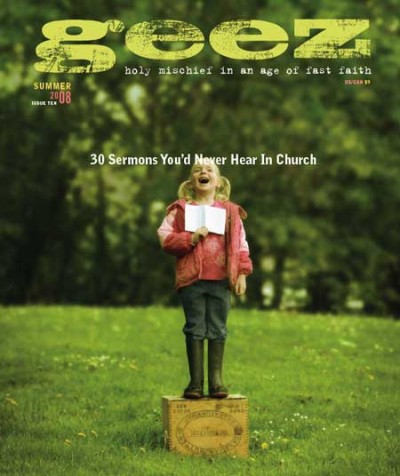Dawkins, delusion and the search for a shared ethics
A FEW YEARS AGO Richard Dawkins and I had an exchange of views at a meeting in Oxford. James Watson, the co-discoverer of DNA and Nobel Prize winner, was also there. At the coffee break just after this exchange, Watson – who agrees with Dawkins about religion – said to me, “You know Margo, the problem with you is that you’re full of mystical nonsense.” Mystical nonsense is indeed a real danger, but I think that he and Dawkins are mystically tone deaf, which is a much more serious danger.
Dawkins is on a highly publicized campaign to convince the world that “religion is the root of all evil.” At the centre of his argument is the proposition that faith and reason are incompatible. But they are not in fact incompatible. In positing this incompatibility, Dawkins, whom I consider a fundamentalist atheist, and religious fundamentalists are similar. They all take an either/or approach to everything. Dawkins casts the current societal-ethical values debate as consisting of a series of choices: either them or us, atheism or religion, science or faith, reason or emotion and mysticism. I believe we must accommodate all of these realities and, to help us do that, I propose we need to search for a shared ethics… .
Human ways of knowing
Richard Dawkins and I part company most dramatically when it comes to what I call “human ways of knowing.” An overwhelming focus on reason is at the heart of Dawkins’ views, but I believe our valid and necessary ways of knowing are multiple and diverse, encompassing the mind, body, heart and spirit. John Ralston Saul, in his book The Unconscious Civilization, includes among our ways of knowing: common sense, human memory (history), imagination, creativity, intuition (I’d emphasize moral intuition), ethics and reason.
I would expressly add experiential knowledge and underline its importance to ethics, because experiential knowledge cuts across all of the other ways of knowing used in “doing ethics.” …
Let me be clear.
We are secular societies and there is rightly a separation of church and state. The question is: What does respecting that separation require? People who are adamantly atheistic believe it means religion must have no voice in the public square. I disagree. I believe religion is one voice among many, including secular and atheistic voices, that have a right to participate and be heard in societal debates.
The above article is an excerpt of an adaption of a speech delivered at The Sydney Institute, June 4, 2007. See Geez magazine issue 10, Summer 2008, pages 58-61; subscription info here.
Margaret Somerville is founding director of the Centre for Medicine, Ethics and Law at McGill University in Montreal, Quebec. She received the 2004 UNESCO Avicenna Prize for Ethics in Science, and is author of The Ethical Imagination (Anansi, 2006).



Sorry, comments are closed.